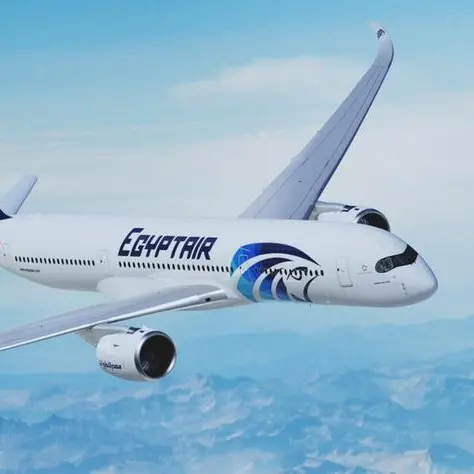30 July 2015
MUSCAT: The Ministry of Oil and Gas has doubled the price of natural gas supplied to electricity generation plants in the Sultanate with effect from January 1, 2015.
Natural gas -- the principal fuel resource for power generation in the Sultanate -- now costs $3 per million British Thermal Units (MMBTU), up from $1.50 per MMBTU last year. Thereafter, the gas price will be increased at the rate of 3 per cent every year, mirroring tariffs applied to natural gas supplied to industrial consumers since the start of this year.
Importantly, the price increase, while having no impact on the cost of electricity charged to customers or on the profit earnings of power producers, is set to send power sector subsidies soaring.
According to figures released by the Authority for Electricity Regulation Oman (AER), the subsidy on electricity consumed within the Main Interconnected System (MIS) -- the grid serving much of the northern half of the Sultanate -- is expected to balloon to RO 340.5 million for 2015, which represents a hefty 59 per cent increase over last year's subsidy of RO 214.1 million.
"The authority's 2015 estimate of MIS costs represents a 31 per cent increase over (actual) 2014 costs... this is primarily the result of the 40 per cent increase in electricity production cost that, in turn, is largely driven by the gas price increase," the regulator stated in its newly released 2014 Annual Report.
As a result of the increase in the gas price, the underlying subsidy per kilowatt-hour (kWh) of electricity is projected to jump to 14.4 baisa/kWh in 2015, up 52 per cent from 9.5 baisa/kWh prevailing in 2014.
This effectively translates into a 20 per cent increase in the economic cost per kWh of electricity, the regulator pointed out. Funding support for the electricity sector accounts for a significant chunk of the estimated RO 1.8 billion in subsidies and exemptions provided for by the Omani government in the 2015 Budget, covering also grants towards fuel, water, basic foodstuff and animal feed.
Of the total economic cost (RO 560 million) of supplying electricity to customers within the Main Interconnected System in 2014, customer revenues accounted for only RO 345.9 million (62 per cent).
The remaining 38 per cent of the cost was covered by government subsidy, the regulator said.
For the Salalah System, the authority's estimate of subsidy for 2015 is RO 41.3 million, representing a 45 per cent jump over the 2014 subsidy of RO 28.5 million.
Last year, subsidy accounted for 44 per cent of the total economic cost (RO 65.3 million) of supplying electricity to consumers connected to the system in Dhofar Governorate.
The remaining 56 per cent of the cost was recovered through customer revenues.
"As with the Main Interconnected System, the increase in the price of gas has a similarly significant impact on the cost of electricity generation and electricity Subsidy in the (Salalah) System," the regulator said.
"In addition to the increase in gas price, the increase in subsidy also reflects: (i) an 13.5 per cent growth in kWh supply to customers; (ii) a 9.3 per cent growth in customer connections; and (iii) new price controls for (the Salalah System)," it noted.
Production costs in rural areas falling within the jurisdiction of the Rural Areas Electricity Company (RAECO) will however not be affected by the spike in the gas price, primarily because power generation plants operated by the company run of diesel -- and not natural gas - to produce electricity.
Still, subsidy allocations to RAECO are projected to increase to RO 66.5 million in 2015, up 50 per cent from the 2014 subsidy of RO 44.5 million. Giving details, the authority said: "The increase in 2015 RAECO subsidy reflects changes to the company's price controls to accommodate capital expenditure to fund transmission and distribution system investment in Musandam to support a 120MW gas fired power plant that when commissioned will displace expensive diesel fired generation."
Under Article 18 of the Sector Law, the Ministry of Finance provides electricity subsidy calculated by the Authority to licensed suppliers on an annual basis.
Distribution companies can bill customers only according to a Permitted Tariff scheme approved by the Council of Ministers.
MUSCAT: The Ministry of Oil and Gas has doubled the price of natural gas supplied to electricity generation plants in the Sultanate with effect from January 1, 2015.
Natural gas -- the principal fuel resource for power generation in the Sultanate -- now costs $3 per million British Thermal Units (MMBTU), up from $1.50 per MMBTU last year. Thereafter, the gas price will be increased at the rate of 3 per cent every year, mirroring tariffs applied to natural gas supplied to industrial consumers since the start of this year.
Importantly, the price increase, while having no impact on the cost of electricity charged to customers or on the profit earnings of power producers, is set to send power sector subsidies soaring.
According to figures released by the Authority for Electricity Regulation Oman (AER), the subsidy on electricity consumed within the Main Interconnected System (MIS) -- the grid serving much of the northern half of the Sultanate -- is expected to balloon to RO 340.5 million for 2015, which represents a hefty 59 per cent increase over last year's subsidy of RO 214.1 million.
"The authority's 2015 estimate of MIS costs represents a 31 per cent increase over (actual) 2014 costs... this is primarily the result of the 40 per cent increase in electricity production cost that, in turn, is largely driven by the gas price increase," the regulator stated in its newly released 2014 Annual Report.
As a result of the increase in the gas price, the underlying subsidy per kilowatt-hour (kWh) of electricity is projected to jump to 14.4 baisa/kWh in 2015, up 52 per cent from 9.5 baisa/kWh prevailing in 2014.
This effectively translates into a 20 per cent increase in the economic cost per kWh of electricity, the regulator pointed out. Funding support for the electricity sector accounts for a significant chunk of the estimated RO 1.8 billion in subsidies and exemptions provided for by the Omani government in the 2015 Budget, covering also grants towards fuel, water, basic foodstuff and animal feed.
Of the total economic cost (RO 560 million) of supplying electricity to customers within the Main Interconnected System in 2014, customer revenues accounted for only RO 345.9 million (62 per cent).
The remaining 38 per cent of the cost was covered by government subsidy, the regulator said.
For the Salalah System, the authority's estimate of subsidy for 2015 is RO 41.3 million, representing a 45 per cent jump over the 2014 subsidy of RO 28.5 million.
Last year, subsidy accounted for 44 per cent of the total economic cost (RO 65.3 million) of supplying electricity to consumers connected to the system in Dhofar Governorate.
The remaining 56 per cent of the cost was recovered through customer revenues.
"As with the Main Interconnected System, the increase in the price of gas has a similarly significant impact on the cost of electricity generation and electricity Subsidy in the (Salalah) System," the regulator said.
"In addition to the increase in gas price, the increase in subsidy also reflects: (i) an 13.5 per cent growth in kWh supply to customers; (ii) a 9.3 per cent growth in customer connections; and (iii) new price controls for (the Salalah System)," it noted.
Production costs in rural areas falling within the jurisdiction of the Rural Areas Electricity Company (RAECO) will however not be affected by the spike in the gas price, primarily because power generation plants operated by the company run of diesel -- and not natural gas - to produce electricity.
Still, subsidy allocations to RAECO are projected to increase to RO 66.5 million in 2015, up 50 per cent from the 2014 subsidy of RO 44.5 million. Giving details, the authority said: "The increase in 2015 RAECO subsidy reflects changes to the company's price controls to accommodate capital expenditure to fund transmission and distribution system investment in Musandam to support a 120MW gas fired power plant that when commissioned will displace expensive diesel fired generation."
Under Article 18 of the Sector Law, the Ministry of Finance provides electricity subsidy calculated by the Authority to licensed suppliers on an annual basis.
Distribution companies can bill customers only according to a Permitted Tariff scheme approved by the Council of Ministers.
© Oman Daily Observer 2015




















